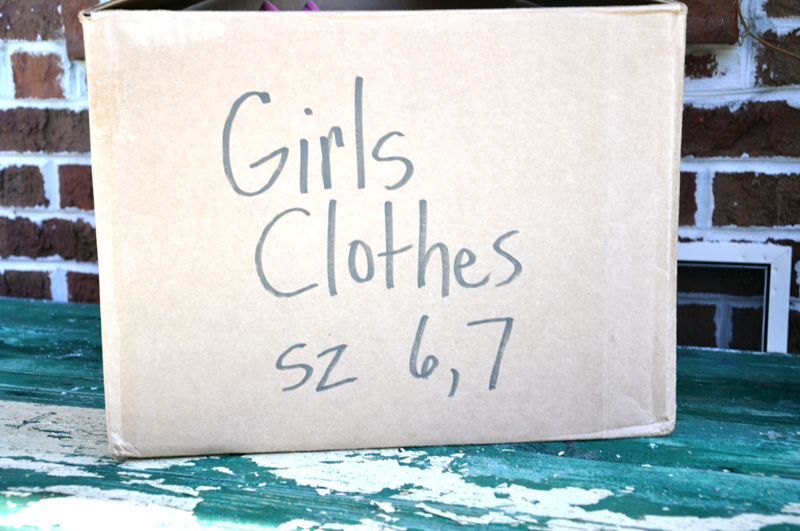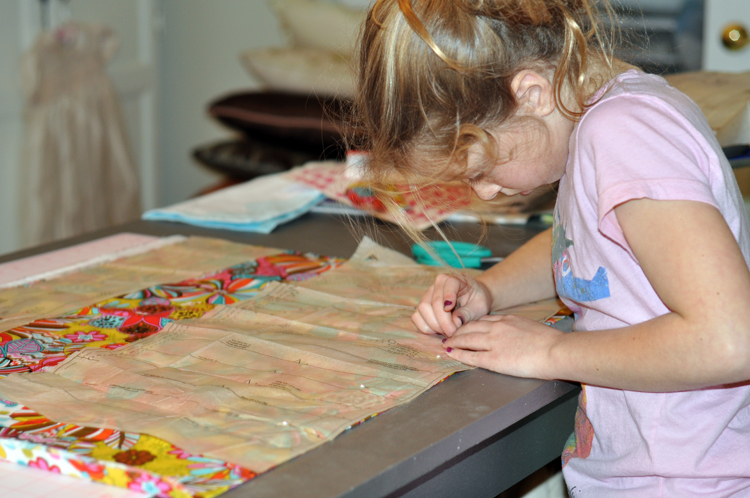‘He will hide the kingdom of God in earthly stories…and you won’t ‘get it’ until you get Jesus…..these parables are a crisis of faith and unbelief and you will not ‘get them’ until you get Jesus and who He is and why He came. “
“You should be a Good Samaritan too and help your neighbor. So what kind of a neighbor are you?”
A lawyer (expert in the Torah) asks Jesus what he must DO to inherit eternal life. (Although we’re already in trouble because isn’t an inheritance a gift). Then Jesus asks him what he thinks he must do.He says, “Love God and love my neighbor”.Jesus says “Yes, do this and you will live”.Jesus knows the lawyer can’t DO that but Jesus is a gentleman and will let us live by ‘the law’ if we choose.The lawyer ‘wanting to justify himself’ says “Well who is my neighbor?”.And then Jesus tells the parable: A priest and a Levite,on the road from Jerusalem to Jericho, pass a nearly dead man who has been robbed and beaten and left to die. They pass him by for various reasons (per Jewish law they would have been rendered unclean for priestly duties) and he’s helped by a Samaritan (not bound by Jewish law) who puts him on his own donkey, bandages his wounds, takes him to an inn and pays his bill. (paraphrased from Luke 10:25)
Christ is our good Samaritan. He has found us along the road of life, beaten and robbed and desperate. He rescues us, bandages us, saves us and takes us to the inn (the church) and pays our debt. Pastor Cwirla even takes the terms of the parable in an allegorical way to say: Think of Jesus as our good Samaritan. He literally becomes our neighbor in the incarnation. He takes on our flesh and is bloodied by our sin. The punch line of the parable is that he frees us from the law. The hero of the parable is Jesus. And because the Samaritan is not bound by the law, {as are the lawyer and the priest and the Levite} he is free to serve others willingly. In other words, Christ became my good Samaritan and died to save and ransom me—-to free me from the law—-so that I am now free to serve others.
Recipes
a little spring sewing
Thank you for all your encouragement and advice yesterday.
I don’t think I’ve ever attempted any harder task: teaching my girls, facing my
own demons, and praying that
at end of the day, God fills in the gaps.
We’ve spent the better part of two afternoons in the craft room—-which always seems to cure our restless spirits.
We entered at 1:30, armed with patterns, fabrics and pins…….
and emerged at 3:30 with this dainty little spring number.
and we couldn’t resist the urge to brave the wet, chilly day
to dance around, and kirtsy
and wish for spring.
I used McCall’s pattern # 5797 and found the fabric at Hobby Lobby. We also made sock monkeys which, I have to say, are about the cutest things EVER! This could be a wonderful lazy, crafting, reading kind-of-a-weekend. Take that, January!
Thank you for your patience as Darcy and I fiddle with fonts and headers and such to make this new home for lifeingrace cozy.
Classical Homeschooling: Staying the Course
I find myself at a bit of crossroads in my homeschooling journey. For the sake of those who are new to this blog, I’m in my second year of homeschooling my two littlest children—7 and 9, both doing 3rd grade*ish work—after quitting my job 3 years ago as a family practice physician. I have loved being a stay-at-home mom, I have loved homeschooling, and I am completely enamoured with the classical model for teaching children. I follow a blend of Charlotte Mason/ The Thomas Jefferson Education/ The Well Trained Mind. I have only had one episode of locking myself in my bathroom for two hours and sobbing uncontrollably. All in all, it’s been a wonderful journey: spending oodles of time with my children, shepherding their hearts and learning alongside them.
The classical model of learning is demanding for parents.
It requires that you and your children read the great classic works of literature, math and science and then discuss these works together. It assumes that when children are inspired by parents or teachers or mentors, they will want to learn and will do the work necessary to gain the knowledge they seek. The end result is a student who is a self-learner, who is motivated by the love of knowledge itself—not for some secondary gain of grades, treats or approval. And it is a delicate balance that seems difficult to attain. If you spend 40-50% of your days reading books, there’s not a lot of tangible evidence that you are acquiring or mastering anything. Worksheets are much easier to hold up as proof of your efforts. It’s not so easy to appreciate and evaluate a head full of adventures and stories and imagination. And it’s sometimes easier to say, “You go do these 7 pages and I’ll see you in an hour.” It can be harder to say, “Let’s go read Shakespeare together and then let’s read Pilgrim’s Progress together and then you read The Magician’s Nephew aloud to me and then let’s talk about it all.”
But a series of worksheets and tests—especially in the home setting, at an early age—- tends to snuff out the fire, the burning desire in all of us to know something, just for the sake of knowing it. For example, I used the Veritas program last year to teach Bible—full of worksheet after worksheet to evaluate comprehension—and none of us liked it. It made the wonderful, harrowing stories of the Old Testament seem dull and dry. This year, we’ve just been reading about the life of Jesus—from the actual Bible— and comparing the differences found in the various gospels. Just the Bible and its’ stories, without an interfering ‘textbook’ , without any way to ‘test’ what they’ve read, and their comprehension is impeccable. They find differences that I miss. They read the parables and stories aloud for themselves and it is simple, but powerful. Charlotte Mason makes the point in her writing that we put too many obstacles between the child and the material and now I see what she means. Introduce children to the characters of classical literature and they will be smitten.

The classical model is also the ultimate in delayed gratification.
For days, weeks, and months, there seems to be very little to ‘show’ for all your labor. You’ve read all kinds of books, you’ve fallen in love with stories, authors and characters. The books you’ve read have changed you; the stories have become part of the fabric of who you are, you dream of the characters, you call them to mind in certain situations and you feel like you know them . You are becoming part of the ‘great conversation’. You are starting to realize how you ‘fit’ into this big wonderful world and its’ story.
But that rich inner life that is developing cannot be measured or tested. It’s like a fire that needs careful feeding, lest it be quenched. And that fire is what will motivate students to educate themselves—to be lifelong learners. Learning is hard work and if you push too hard and demand ‘work’ for the sake of work—they learn to do the least amount that’s necessary to avoid conflict. But if you inspire, nourish– ‘feed’ the fire, if you will—they will be driven by something strong and unquenchable inside themselves and there are no limits to what they will do to learn. I wish there were an easier way; but this form of teaching succeeds most assuredly when you lead by example. Which sometimes leaves me face to face with my own inadequacies and deficits. And when I get stressed, I start demanding results, which leads to fire-quenching. You see the vicious cycle.
So, here is my dilemma. I know I’m at a critical point with my girls. So far, I don’t think I’ve quenched the fire. But my human nature wants something tangible. I want a report card that says my student made all A’s and here are the worksheets and tests to prove it. I want cold hard facts and all I’ve got is a stack of books with tattered, worn pages. To make matters worse, I faced every homeschooling mothers’ worst fear last month: the soul-shaking, “No offense Mom, but I think I want to go to ‘real’ school next year”. The pleas to go to ‘real’ school have only surfaced when there is conflict between us and I know in my heart that I need more time with them. The fire is started but it’s not blazing yet. Perhaps I need a good pep talk from Charlotte Mason; her books will give you every reason to stay the course. Maybe it’s time to schedule a field trip to a play or a museum. It could be time to watch youtube and learn how to salsa dance. More than likely, it’s just the January blues that all homeschoolers experience. We all grow restless for something bigger and better.
I need a full measure of patience: to stay the course, to snuggle by the fire and read—fighting the pressure to produce something more tangible for the world to see, to mentor my girls by continuing to educate myself and to continue to inspire them by my own love for learning.
The one measurable thing we do frequently is memorization. We’re currently working on Psalm 40, the states and capitals, a poem, and the small catechism. We memorized a poem this fall that the girls recited in the front of the camera today called, ” Rebecca, Who Slammed Doors for fun and Perished Miserably”. There’s something comforting, substantial and verifiable about oral recitation. I guess it’s our form of grades.
Take it away girls! I give you an A+! Then, we’ll resume our post by the fire.
{Update coming soon on how our specific subjects are progressing}
Help for Haiti
If your children are like mine, when they see a snippet of the devastation in Haiti, they are captivated. Especially when the devastation involves so many children. We are all at a loss for what to do. I’d like to jump on a plane and bring all the Haitian orphans home with me. Since that is likely not possible, the girls and I are packing up boxes of stuff to send their way. The relief arm of the lutheran church, called LCMS-World Relief and Human Care is loading two 40 foot trailers to take in the next two weeks from St. Paul Lutheran Church in Boca Rotan Florida. Pastor Will Weedon has a list on his blog of all the things they are accepting at this time. The girls and I cleaned out our closets and packed up clean used clothes, labeled them clearly and will ship them today.

If you ever needed motivation to do a little ‘house cleaning’ this is it. As I was cleaning out my closet, I had my computer handy so I could listen to this segment on Issues, Etc—-an interview with Pastor Matt Harrison, director of LCMS World Relief and Human Care—-and his reaction to the misguided statements made by Pat Robertson on the earthquake being God’s judgement on Haiti. Pastor Harrison reminds us that the law condemns us all, we are all equally sinful. If God were in the business these days of judging sin in this manner, I have little doubt that our country would be first on the list. This should drive us all to repentance. We are all guilty and deserving of God’s judgement and yet He has poured out His judgement on Christ—-on the cross—-for our very own redemption, so that we do not have to face His judgement. We can only interpret the magnitude of this suffering through the lens of the cross. Kyrie Eleison.

The littles drew pictures and wrote letters to the Haitian children, telling them that we love them and are praying for them.
It’s not much—but it’s something tangible that you can do with your kids to help to teach them about God’s mercy in times of devastation.

The contact information for the church is:
St. Paul Lutheran Church
801 West Palmetto Park Rd.
Boca Raton, FL 33486
561-395-0433
You can donate to the LCMS World Relief for Haiti by clicking here and scrolling down for the ‘give now’ tab.
I’m linking up with Money Saving Mom who has agreed to donate $10 for every person who blogs about what their family is doing to support Haiti and then links to her site.
Desperate for Home :: A Review of Till We Have Faces
I shall attempt to give my thoughts on C.S. Lewis’ book Till We Have Faces. I know this for sure; what little I can string together on the subject will be inadequate. This book left me stunned, ashamed and yet profoundly hopeful and longing. It’s a complex layered story that lays bare the human soul , exposing the depravity in us all and reminding us that our despair has been answered in the love and atonement of Another. Lewis forces the reader to lay down his weapons. To surrender the defenses with which we so violently protect ourselves. And he forces us, unarmed, bare, and vulnerable to look into the ‘mirror’ and face the hideousness that we see there. He reminds us that we can’t properly see till we have eyes, nor love till we have hearts; and we certainly cannot see His face, till we have faces.
Most of all, he leaves the reader longing—–for home.
This book is profoundly different from his other works, was claimed to be his favorite of his own books and was his last and—- in the opinion of many, including me—his best published work. He retells the story of the greek myth of Cupid and Psyche but from the perspective of Orual, who is Psyche’s older, hideous-looking sister. The book is, in essence, Orual’s complaint to the gods, about her life and the sometimes unfortunate, horrible situations in which she was placed. Lewis tells the story in the first person and describes Orual’s journey of self-discovery and how, though she is often abused and oppressed, finds time and time again that she is the oppressor herself. Though she was like a mother to her sister Psyche and loved her intensely, she learns that her love was laced with selfishness and self-preservation.
Orual later becomes a wise and beloved queen and is praised for her many skills. She wears a veil to conceal her ugliness and after many years, the people began to spread rumors, that perhaps she wears a veil because she’s too beautiful to show her face. She, however, knows the truth and is shown by the ‘gods’ that despite her outward appearance of success, she is destitute.
She says,
“I would set out boldly each morning to be just and calm and wise in all my thoughts and acts, but before they had finished dressing me I would find that I was back in some old rage, resentment, gnawing fantasy, or sullen bitterness. I could not hold out half an hour . . . I could mend my soul no more than my face.”
{sounds so oddly and clearly familiar to my every morning}
Orual’s journey of self-discovery comes full circle when she finally comes face to face with the gods. As she makes her complaint, she realizes the absurdity of her words, the uselessness of all the cover-ups and disguises. {It occurred me how often I’ve played a litany in my head of excuses and justifications and complaints to God and how childish it all must have sounded}
Orual says,
” When the time comes to you at which you will be forced at last to utter the speech which has lain at the center of your soul for years, which you have, all that time, idiot-like, been saying over and over, you’ll not talk about the joy of words. I saw well why the gods do not speak to us openly, nor let us answer. Till that word can be dug out of us, why should they hear the babble that we think we mean? How can they meet us face to face till we have faces?”
After making her complaint to the gods and realizing the wretchedness of her own soul, she must now face the gods’ complaint against her and she must do it un-veiled. And miraculously, in a most wondrous picture of Christ’s vicarious atonement for us, she is revealed as beautiful—-she is given the beauty of Psyche and when the gods judge her, they see only Psyche.
This book will not leave you pointing fingers to how others have been at fault for what’s wrong in your life. Or even how God has deserted you. It will boldly set a mirror in front of you and bid you see clearly. And it will give you hope, that when we are clothed with Christ, God, our judge, sees only Him and his perfect life and love and obedience on our behalf. His beauty overtakes our sin. We exchange our hideousness for His love and perfection, as a beautiful and gracious free gift. Lewis leads us to despair of ourselves and to ultimately find our true joy and hope in Another.
Lewis is brilliant in his ability to strip down the readers’ defenses, forcing us to look at ourselves for who and what we really are. And we are nothing, if not, desperate…….for home.
Note: This book is deep and rich and must be read and re-read. It will sucker punch you and leave you almost out of breath at times. I’ve read certain sections more than ten times and am still reeling from the truths that can be found here. But beware, this book will get under your skin and gnaw at all your presuppositions.
{After reading the book, there was something at its’ essence that reminded me of Matthew Mayfield’s song Open Road. I’ve included the lyrics and installed the song at the top of this post–just above the date. Just push play and let your defenses wash away}
Open Road
Lay me down on
shores of the whitest sand
soft like that woman
with the fight of a thousand men
and if you find the key
would you set me free?
if you find the key
would you set me free?
I’m screaming to God
‘would you come and save
what you’ve either forgotten
or you’re strengthening
I’ve finally paid the toll
and it’s all open road
just trying to find a home
take me home’
Violet iris
and lilies in bloom for spring
enticing—the silence
a song that we all can sing
and if you find the key
would you set me free?
if you find the key
would you set me free?
I’m screaming to God
‘would you come and save
what you’ve either forgotten
or you’re strengthening
I’ve finally paid the toll
and it’s all open road
just trying to find a home
take me home’
We’re tired and changing
heartbeats are fading
our days are numbered
the clocks, they keep ticking
I’ve been deserted,
my feelings perverted
by a pissed off and ripped up machine cycle circus
when we look in the mirror
it shatters with shame
our faces are bloody
and sour with disdain
I have seen what you are
and I have seen who I am
and we are desperate, we’re desperate, we’re desperate
for home…
home….
lay me down on
shores of the whitest sand
soft like that woman
with the fight of a thousand men








